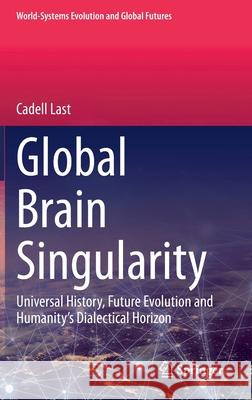Global Brain Singularity: Universal History, Future Evolution and Humanity's Dialectical Horizon » książka
topmenu
Global Brain Singularity: Universal History, Future Evolution and Humanity's Dialectical Horizon
ISBN-13: 9783030469658 / Angielski / Twarda / 2020 / 324 str.
Global Brain Singularity: Universal History, Future Evolution and Humanity's Dialectical Horizon
ISBN-13: 9783030469658 / Angielski / Twarda / 2020 / 324 str.
cena 402,53
(netto: 383,36 VAT: 5%)
Najniższa cena z 30 dni: 385,52
(netto: 383,36 VAT: 5%)
Najniższa cena z 30 dni: 385,52
Termin realizacji zamówienia:
ok. 16-18 dni roboczych.
ok. 16-18 dni roboczych.
Darmowa dostawa!
Kategorie BISAC:
Wydawca:
Springer
Seria wydawnicza:
Język:
Angielski
ISBN-13:
9783030469658
Rok wydania:
2020
Wydanie:
2020
Numer serii:
000822550
Ilość stron:
324
Waga:
0.67 kg
Wymiary:
23.39 x 15.6 x 2.06
Oprawa:
Twarda
Wolumenów:
01
Dodatkowe informacje:
Wydanie ilustrowane











